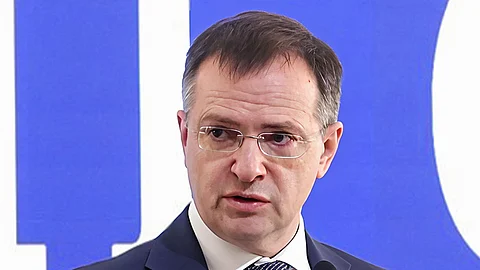

The first exchange of fallen soldiers between Russia and Ukraine took place on Wednesday, marking a significant shift after earlier refusals by Kyiv to accept the bodies of its troops from Russian forces.
According to Vladimir Medinsky, head of Russia’s negotiating delegation, Russia handed over the bodies of 1,212 Ukrainian soldiers in exchange for the remains of 27 Russian servicemen.
This exchange follows an agreement reached during a meeting between Russian and Ukrainian representatives in Istanbul on June 2. The two sides agreed to exchange up to 6,000 bodies of fallen soldiers.
In addition to the repatriation of the dead, a prisoner exchange also took place on Tuesday, involving 1,200 Ukrainian and 1,200 Russian soldiers. This included all severely wounded prisoners and those under the age of 25—key groups identified for priority release under the terms of the Istanbul agreement.
Medinsky also stated that exchanges involving severely wounded prisoners would continue on Thursday.
Over the weekend, Russia transferred the first batch of deceased Ukrainian soldiers to the border, placing the remains in refrigerated trucks. However, according to Russian officials, Ukrainian authorities initially refused to accept them.
Some analysts and Ukrainian commentators have suggested that the Zelensky administration’s initial refusal stemmed from a reluctance to trigger compensation payments to families, as Ukrainian law only permits such payments after a soldier's death is officially confirmed. Others argue the refusal may have been politically motivated, as accepting thousands of dead soldiers could publicly contradict Ukraine's official casualty figures.
On June 5, President Volodymyr Zelensky reported that 48,000 Ukrainian soldiers had been killed during the nearly 40-month-long conflict—a number met with skepticism by both Western and Russian analysts.
Accepting the bodies of 6,000 soldiers—representing one-eighth of the total deaths officially acknowledged—may further fuel doubts about Kyiv’s reported casualty figures and could prompt growing scrutiny from Western supporters of Ukraine.